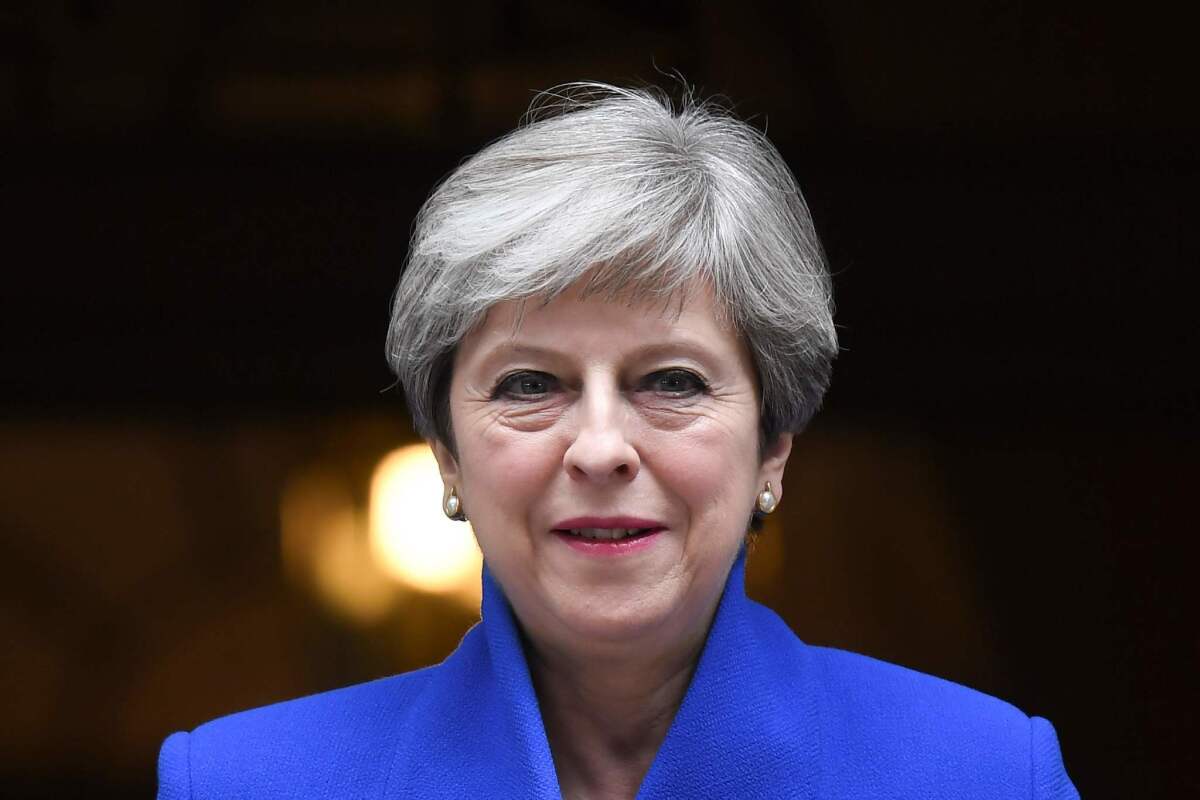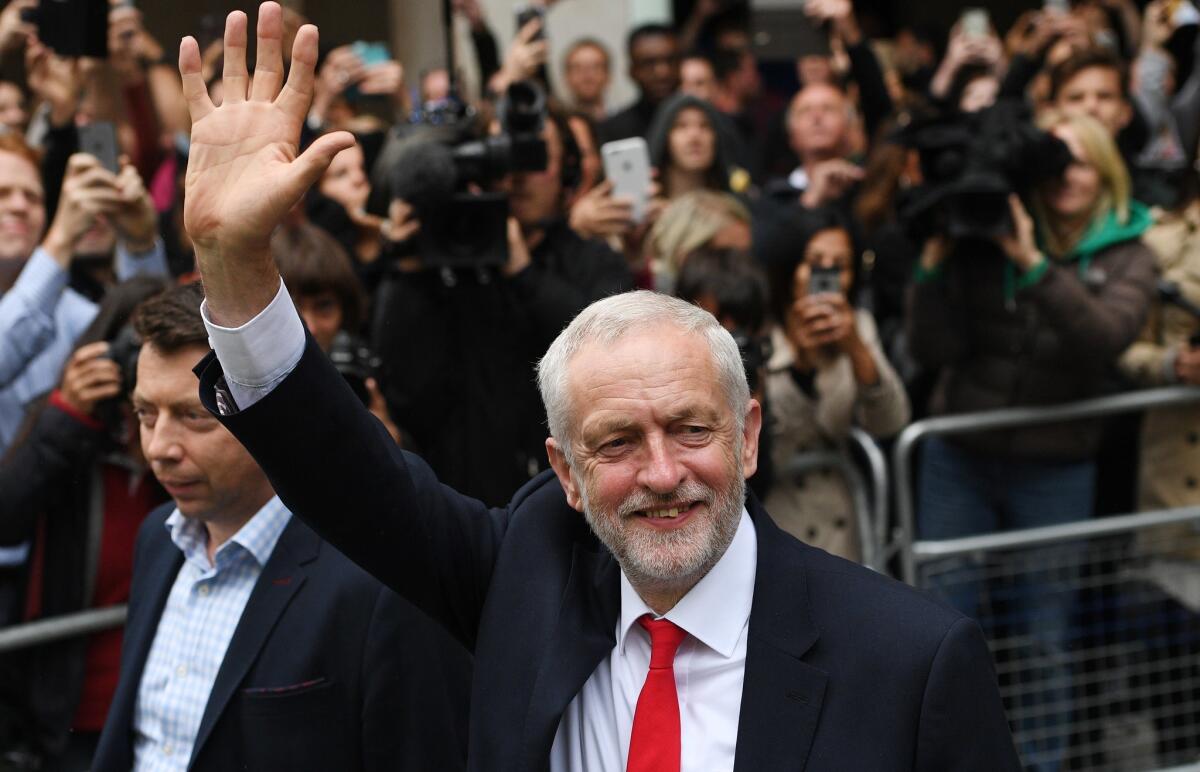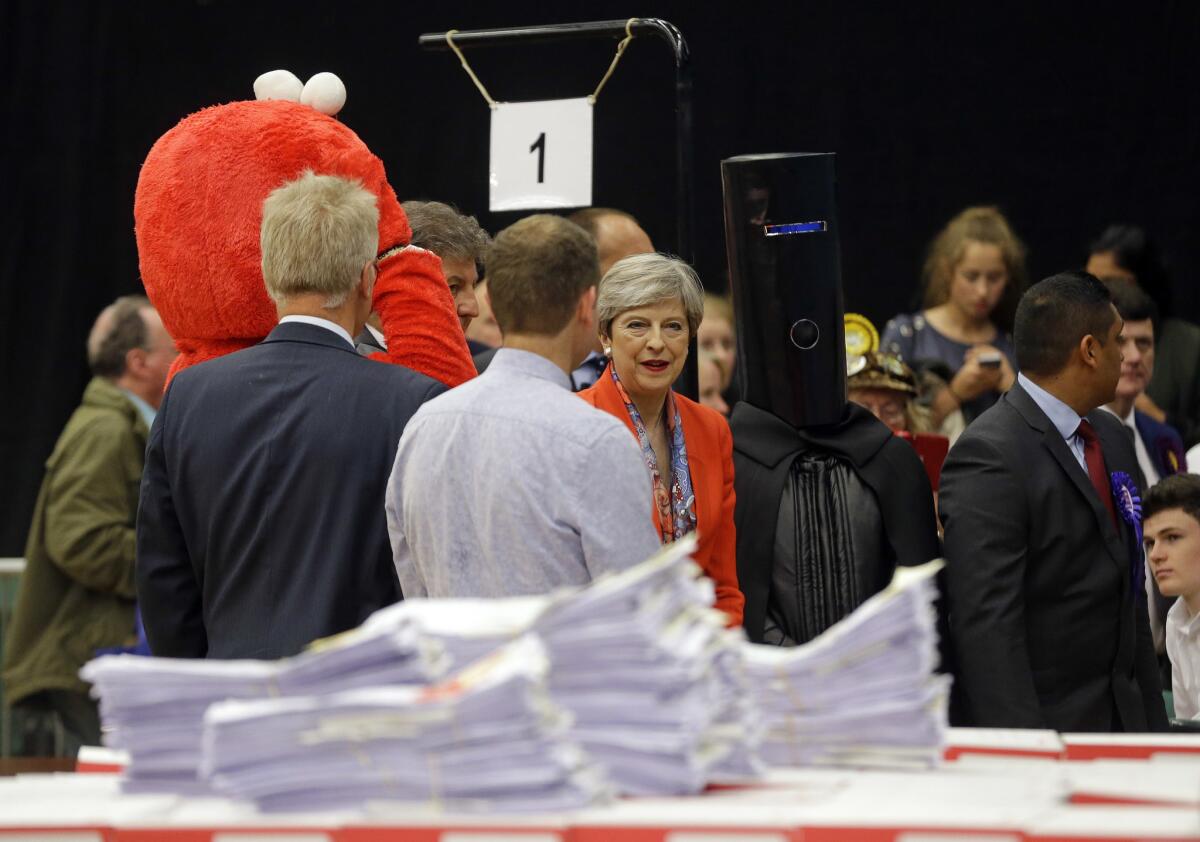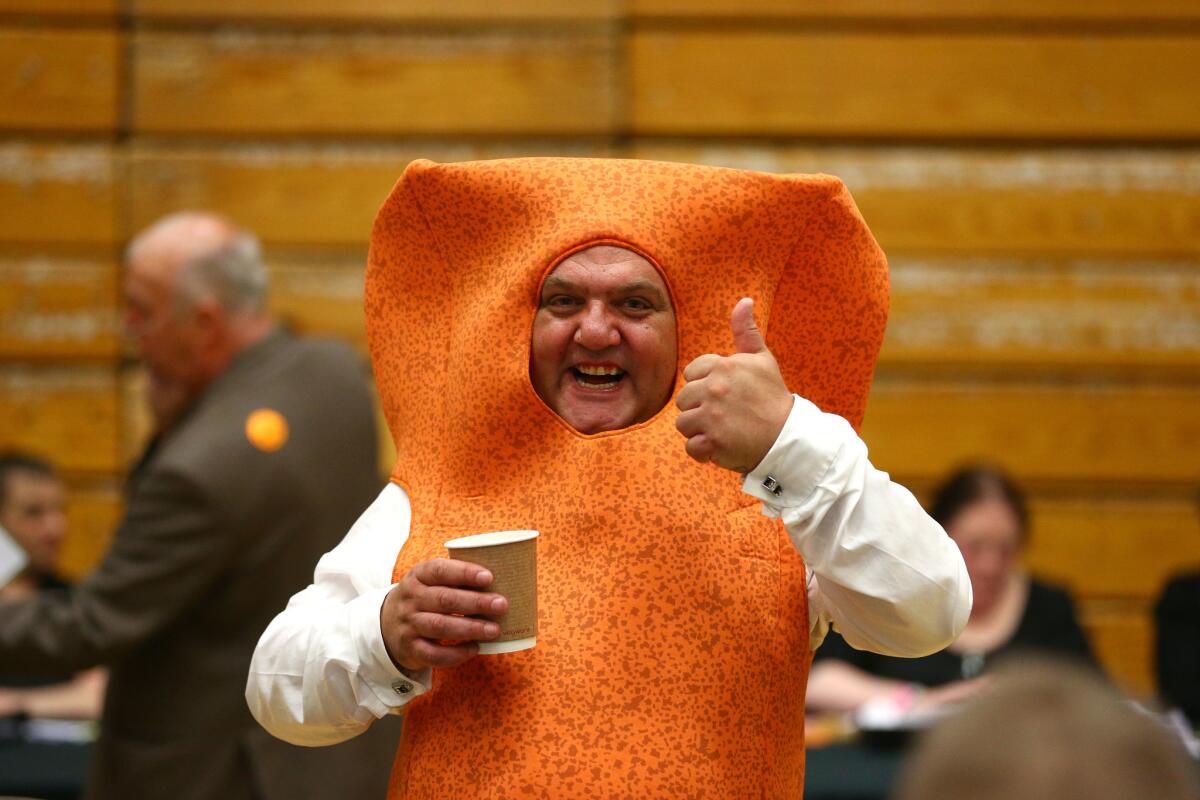Q&A: Here’s what you need to know about the British election
- Share via
On Thursday, British voters headed to the polls to elect their next government. If it seems Britain recently had an election, you’re right. Almost a year ago, Britain held the “
In April, May called for an election to be held June 8. The timing of the election was significant: Talks about how Britain will leave the EU are set to begin in mid-June.

Why did May call for another election?
Brexit has a lot to do with it.
May did not need to call for a new election. In fact, another general election was not due until 2020, the year after Britain is due to leave the EU. May gambled that an election could help legitimize her position as she negotiates Brexit.
“If we do not hold a general election now, their political game-playing will continue,” May said in an April speech calling for the surprise election. “And the negotiations with the European Union will reach their most difficult stage in the run-up to the next scheduled election.”
So, who won?
That’s not entirely clear. The election has resulted in a hung Parliament, which means no party holds a clear majority.
There are 650 members of Parliament in Britain’s House of Commons, so 326 seats are needed for a majority.
May’s ruling
Here’s the new breakdown of seats by party:
- Conservative: 318
- Labor: 262
- Scottish National Party (SNP): 35
- Liberal Democrat: 12
- Democratic Unionist Party: 10
- Sinn Fein: 7
- Palid Cymru: 4
- Green Party: 1
What happens next?
In keeping with tradition when no party has won a majority, May met with
What are the political views of the DUP?
The DUP is the largest unionist political party in Northern Ireland. Some members oppose same sex marriage and abortion rights and don’t believe in climate change. The party is also pro-Brexit and socially conservative.
What does this mean for the Labor Party ?
Polls in mid-April showed the Conservative Party ahead of Labor — sometimes by double digits. But just as the Brexit vote was a surprise, so was this election. One option for the Labor Party is to form a coalition with the Green Party, SNP and the Liberal Democrats.

Will Theresa May step down?
There are no signs that May will resign, despite calls from Labor leader Jeremy Corbyn and others.
Who are Lord Buckethead, Elmo and Mr. Fishfinger?
These were some of Britain’s more unusual candidates. Lord Buckethead stood next to May as results were read out for the Maidenhead constituency, a town located in Berkshire. Just as the name suggests, Lord Buckethead did in fact have a bucket on his head, which along with a black cape made him hard to miss.

Elmo stood on the same podium with May. He’s another rather unorthodox candidate who managed to pull in three votes, according to the Guardian. And yes, Elmo was red.
And let’s not forget Mr. Fishfinger, a man dressed as a frozen food item. Wearing an orange costume that covered his head and reached to just above his knees, Mr. Fishfinger stood alongside other candidates in Westmorland and Lonsdale, in a rural area in northwest England. Mr. Fishfinger was jubilant as the announcer declared that he had won 309 votes.

What does all this mean for Brexit ?
That’s the biggest question.
Although the British public voted to leave the EU last summer, doing so is far from simple. Party leaders have until March 2019 to negotiate the departure and decide how a Britain separate from the EU will look. May and her ilk have been consistently pushing for a “hard Brexit,” meaning Britain would leave the EU’s single market and give up freedom of movement throughout the EU.
But some analysts think the election result will make it more difficult for the Conservative Party to achieve, raising the likelihood of a “soft Brexit,” in which Britain remains in the single market and citizens enjoy some freedom of movement.
Sign up for Essential California
The most important California stories and recommendations in your inbox every morning.
You may occasionally receive promotional content from the Los Angeles Times.








